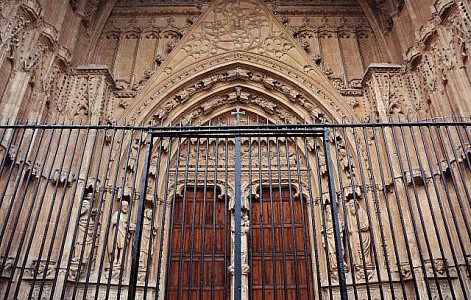[辅导:AncientLawChapter6]If an attempt were made to demonstrate in England the superiority of the historical method of investigation to the modes of inquiry concerning Jurisprudence whi...+阅读
The conception of a universal succession, firmly as it has taken root in jurisprudence, has not occurred spontaneously to the framers of every body of laws. Wherever it is now found, it may be shown to he descended from Roman law; and with it he e down a host of legal rules on the subject of Testaments and.Testamentary gifts, which modern practitioners apply without discerning their relation to the parent theory. But, in the pure Roman jurisprudence, the principle that a man lives on in his Heir —— the elimination, if we may so speak, of the fact of death —— is too obviously for mistake the centre round which the whole Law of Testamentary and Intestate succession is circling. The unflinching sternness of the Roman law in enforcing pliance with the governing theory would in itself suggest that the theory grew out of something in the primitive constitution of Roman society; but we may push the proof a good way beyond the presumption. It happens that several technical expressions, dating from the earliest institution of Wills at Rome, he been accidentally preserved to us. We he in Gaius the formula of investiture by which the universal successor was created. We he the ancient name by which the person afterwards called Heir was at first designated. We he further the text of the celebrated clause in the Twelve Tables by which the Testamentary power was expressly recognised, and the clauses regulating Intestate Succession he also been preserved. All these archaic phrases he one salient peculiarity. They indicate that what passed from the Testator to the Heir was the Family, that is, the aggregate of rights and duties contained in the Patria Potestas and growing out of it. The material property is in three instances not mentioned at all; in two others, it is visibly named as an adjunct or appendage of the Family. The original Will or Testament was therefore an instrument, or (for it was probably not at first in writing) a proceeding, by which the devolution of the Family was regulated. It was a mode of declaring who was to he the chieftainship, in succession to the Testator. When Wills are understood to he this for their original object, we see at once how it is that they came to be connected with one of the most curious relics of ancient religion and law, the sacra, or Family Rites. These sacra were the Roman form of an institution which shows itself wherever society has not wholly shaken itself free from its primitive clothing. They are the sacrifices and ceremonies by which the brotherhood of the family is memorated, the pledge and the witness of its perpetuity. Whatever be their nature, —— whether it be true or not that in all cases they are the worship of some mythical ancestor, —— they are everywhere employed to attest the sacredness of the family-relation; and therefore they acquire prominent significance and importance, whenever the continuous existence of the Family is endangered by a change in the person of its chief. Accordingly we hear most about them in connection with demises of domestic sovereignty. Among the Hindoos, the right to inherit a dead man's property is exactly co-extensive with the duty of performing his obsequies. If the rites are not properly performed or not performed by the proper person, no relation is considered as established between the deceased and anybody surviving him; the Law of Succession does not apply, and nobody can inherit the property. Every great event in the life of a Hindoo seems to be regarded as leading up to and bearing upon those solemnities. If he marries, it is to he children who may celebrate them after his death; if he has no children, he lies under the strongest obligation to adopt them from another family, "with a view," writes the Hindoo doctor, "to the funeral cake, the water, and the solemn sacrifice." The sphere preserved to the Roman sacra in the time of Cicero, was not less in extent. It embraced Inheritances and Adoptions. No Adoption was allowed to take place without due provision for the sacra of the family from which the adoptive son was transferred, and no Testament was allowed to distribute an Inheritance without a strict apportionment of the expenses of these ceremonies among the different co-heirs. The differences between the Roman law at this epoch, when we obtain our last glimpse of the sacra, and the existing Hindoo system, are most instructive. Among the Hindoos, the religious element in law has acquired a plete predominance. Family sacrifices he bee the keystone of all the Law of Persons and much of the Law of Things. They he even received a monstrous extension, for it is a plausible opinion that the self-immolation of the widow at her husband's funeral, a practice continued to historical times by the Hindoos, and memorated in the traditions of several Indo-European races, was an addition grafted on the primitive sacra, under the influence of the impression, which always acpanies the idea of sacrifice, that human blood is the most precious of all oblations. With the Romans, on the contra, the legal obligation and the religious duty he ceased to be blended. The necessity of solemnising the sacra forms no part of the theory of civil law but they are under the separate jurisdiction of the College of Pontiffs. The letters of Cicero to Atticus, which are full of allusions to them, lee no doubt that they constituted an intolerable burden on Inheritances; but the point of development at which law breaks away from religion has been passed, and we are prepared for their entire disappearance from the later jurisprudence.
In Hindoo law there is no such thing as a true Will. The place filled by Wills is occupied by Adoptions. We can now see the relation of the Testamentary Power to the Faculty of Adoption, and the reason why the exercise of either of them could call up a peculiar solicitude for the performance of the sacra. Both a Will and an Adoption threaten a distortion of the ordinary course of Family descent, but they are obviously contrivances for preventing the descent being wholly interrupted, when there is no succession of kindred to carry it on. Of the two expedients Adoption, the factitious creation of blood-relationship, is the only one which has suggested itself to the greater part of archaic societies. The Hindoos he indeed advanced one point on what was doubtless the antique practice, by allowing the widow to adopt when the father has neglected to do so, and there are in the local customs of Bengal some faint traces of the Testamentary powers. But to the Romans belongs pre-eminently the credit of inventing the Will, the institution which, next to the Contract, has exercised the greatest influence in transforming human society. We must be careful not to attribute to it in its earliest shape the functions which he attended it in more recent times. It was at first, not a mode of distributing a dead man's goods, but one among several ways of transferring the representation of the household to a new chief. The goods descend no doubt to the Heir, but that is only because the government of the family carries with it in its devolution the power of disposing of the mon stock. We are very far as yet from that stage in the history of Wills in which they bee powerful instruments in modifying society through the stimulus they give to the circulation of property and the plasticity they produce in proprietary rights. No such consequences as these appear in fact to he been associated with the Testamentary power even by the latest Roman lawyer. It will be found that Wills were never looked upon in the Roman munity as a contrivance for parting Property and the Family, or for creating a variety of miscellaneous interests, but rather as a means of making a better provision for the members of a household than could be secured through the rules of Intestate succession. We may suspect indeed that the associations of a Roman with the practice of willmaking were extr

emely different from those familiar to us nowadays. The habit of regarding Adoption and Testation as modes of continuing the Family cannot but he had something to do with the singular laxity of Roman notions as to the inheritance of sovereignty It is impossible not to see that the succession of the early Roman Emperors to each other was considered reasonably regular, and that, in spite of all that had occurred, no absurdity attached to the pretension of such Princes as Theodosius or Justinian to style themselves Caesar and Augustus.
When the phenomena of primitive societies emerge into light, it seems impossible to dispute a proposition which the jurists of the seventeenth century considered doubtful, that Intestate Inheritance is a more ancient institution than Testamentary Succession. As soon as this is settled, a question of much interest suggests itself, how and under what conditions were the directions of a will first allowed to regulate the devolution of authority over the household, and consequently the posthumous distribution of property. The difficulty of deciding the point arises from the rarity of Testamentary power in archaic munities. It is doubtful whether a true power of testation was known to any original society except the Roman. Rudimentary forms of it occur here and there, but most of them are not exempt from the suspicion of a Roman origin. The Athenian will was, no doubt, indigenous, but then, as will appear presently, it was only an inchoate Testament. As to the Wills which are sanctioned by the bodies of law which he descended to us as the codes of the barbarian conquerors of Imperial Rome, they are almost certainly Roman. The most perating German criticism has recently been directed to these leges Barbarorum, the great object of investigation being to detach those portions of each system which formed the customs of the tribe in its original home from the adventitious ingredients which were borrowed from the laws of the Romans. In the course of this process, one result has invariably disclosed itself, that the ancient nucleus of the code contains no trace of a Will. Whatever testamentary law exists, has been taken from Roman jurisprudence. Similarly, the rudimentary Testament which (as I am informed) the Rabbinical Jewish law provides for, has been attributed to contact with the Romans. The only form of testament, not belonging to a Roman or Hellenic society, which can reasonably be supposed indigenous, is that recognised by the usages of the province of Bengal; and the testament of Bengal is only a rudimentary Will.
The evidence, however, such as it is, seems to point to the conclusion that Testaments are at first only allowed to take effect on failure of the persons entitled to he the inheritance by right of blood genuine or fictitious. Thus, when Athenian citizens were empowered for the first time by the Laws of Solon to execute Testaments, they were forbidden to disinherit their direct male descendants. So, too, the Will of Bengal is only permitted to govern the succession so far as it is consistent with certain overriding claims of the family. Again, the original institutions of the Jews hing provided nowhere for the privileges of Testatorship, the later Rabbinical jurisprudence, which pretends to supply the casus omissi of the Mosaic law, allows the Power of Testation to attach when all the kindred entitled under the Mosaic system to succeed he failed or are undiscoverable. The limitations by which the ancient German codes hedge in the testamentary jurisprudence which has been incorporated with them are also significant, and point in the same direction. It is the peculiarity of most of these German laws, in the only shape in which we know them, that, besides the allod or domain of each household, they recognise several subordinate kinds or orders of property, each of which probably represents a separate transfusion of Roman principles into the primitive body of Teutonic usage. The primitive German or allodial property is strictly reserved to the kindred. Not only is it incapable of being disposed of by testament but it is scarcely capable of being alienated by conveyance inter vivos. The ancient German law, like the Hindoo jurisprudence, makes the male children co-proprietor with their father, and the endowment of the family cannot be parted with except by the consent of all its members. But the other sorts of property, of more modern origin and lower dignity than the allodial possessions, are much more easily alienated than they, and follow much more lenient rules of devolution. Women and the descendants of women succeed to them, obviously on the principle that they lie outside the sacred precinct of the Agnatic brotherhood. Now it is on these last deions of property, and on these only, that the Testaments borrowed from Rome were at first allowed to operate.
These few indications may serve to lend additional plausibility to that which in itself appears to be the most probable explanation of an ascertained fact in the early history of Roman Wills. We he it stated on abundant authority that Testaments, during the primitive period of the Roman State, were executed in the itia Calata, that is, in the itia Curiata, or Parliament of the Patrician Burghers of Rome, when assembled for Private Business. This mode of execution has been the source of the assertion, handed down by one generation of civilians to another, that every Will at one era of Roman history was a solemn legislative enactment. But there is no necessity whatever for resorting to an explanation which has the defect of attributing far too much precision to the proceedings of the ancient assembly The proper key to the story concerning the execution of wills in the itia Calata must no doubt be sought in the oldest Roman Law of intestate succession. The canons of primitive Roman jurisprudence regulating the inheritance of relations from each other were, so long as they remained unmodified by the Edictal Law of the Praetor, to the following effect: —— First, the sui or direct descendants who had never been emancipated succeeded. On the failure of the sui, the Nearest Agnate came into their place, that is, the nearest person or class of the kindred who was or might he been under the same Patria Potestas with the deceased.
The third and last degree came next, in which the inheritance devolved on the gentiles, that is on the collective members of the dead man's gens or House. The House, I he explained already, was a fictitious extension of the family, consisting of all Roman Patrician citizens who bore the same name, and who, on the ground of bearing the same name, were supposed to be descended from a mon ancestor. Now the Patrician Assembly called the itia Curiata was a Legislature in which Gentes or Houses were exclusively represented. It was a representative assembly of the Roman people, constituted on the assumption that the constituent unit of the state was the Gens. This being so, the inference seems inevitable, that the cognizance of Wills by the itia was connected with the rights of the Gentiles, and was intended to secure them in their privilege of ultimate inheritance. The whole apparent anomaly is removed, if we suppose that a Testament could only be made when the testator had no gentiles discoverable, or when they waived their claims, and that every Testament was submitted to the General Assembly of the Roman Gentes, in order that those aggrieved by its dispositions might put their veto upon it if they pleased, or by allowing it to pass might be presumed to he renounced their reversion. It is possible that on the eve of the publication of the Twelve Tables this vetoing power may he been greatly curtailed or only occasionally and capriciously exercised. It is much easier, however, to indicate the meaning ad origin of the jurisdiction confided to the itia Calata, than to trace its gradual development or progressive decay.
以下为关联文档:
AncientLawChapter1AncientCodesChapter 1. Ancient CodesThe most celebrated system of jurisprudence known to the world begins, as it ends, with a Code. From the mencement to the close of its hi...

法律辅导:AncientLawChapter9Chapter 9. The Early History of ContractThere are few general propositions concerning the age to which we belong which seem at first sight likely to be receive...

辅导:AncientLawChapter1Chapter 1. Ancient CodesThe most celebrated system of jurisprudence known to the world begins, as it ends, with a Code. From the mencement to the close of its hi...

辅导:AncientLawChapter4Chapter 4. The Modern History of the Law of NatureIt will be inferred from what has been said that the theory which transformed the Roman jurisprudence had no...

辅导:AncientLawChapter8Chapter 7. Ancient and Modern Ideas Respecting Wills and SuccessionsAlthough there is much in the modern European Law of Wills which is intimately connected wi...




